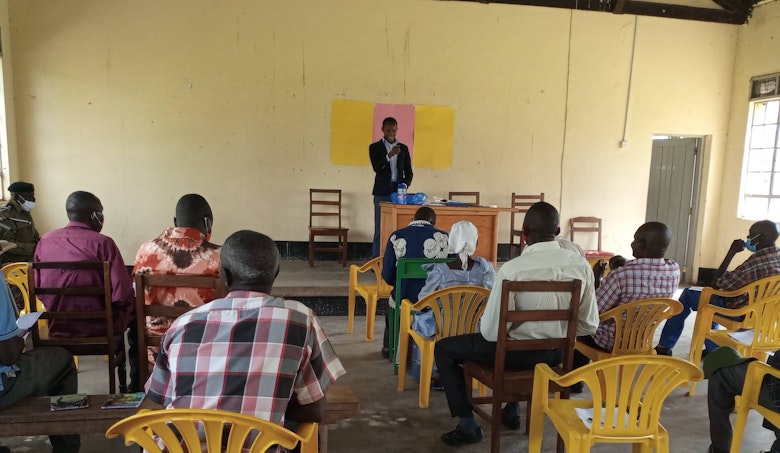Tackling harmful cultural practices: Disco Matanga
It is a known fact that harmful cultural practices perpetuate violence on children. Common practices like forced child marriage and Female Genital Mutilation (FGM) are committed regularly over long periods of time that communities and societies consider acceptable. The community in Busia District, Uganda carry out a cultural practice known as disco matanga (disco funeral). It poses a huge threat to the children there, exposing them to sexual exploitation and violence.
Disco matanga: What it is
As a result of the low socio-economic conditions in Busia, ‘disco matanga’ aims at driving people to raise money for a deceased´s funeral. It is done in the form of a party, with music and dancing. It starts at around 10:00 pm until morning and is repeated for two to three days. Men generally drink local brew, smoke marijuana or chew miraa. They also pay for girls whom they want as ‘dance partners.’ The dance is later used for transactional sex. For unwilling girls and young women, this often puts them at risk of sexual exploitation.
Joint efforts
To end harmful cultural practices, various stakeholders like religious and traditional leaders must be involved. In some communities, the leaders themselves fuel these harmful practices. Others do not understand the child protection risks associated with various practices therefore they don’t act in favour of disapproving these practices.
Through the Joining Forces for Africa (JOFA) Project, Terre des Hommes Netherlands and Somero Uganda held two-day training sessions on 5-6 December 2020 in Buteba with 30 traditional, local and religious leaders in a bid to address the child safety concerns around disco matanga. Among the key resolutions of the training was to engage the sub-county leaders on harmful practices that were selected by the cultural leaders and had committed for later follow up. “What is being discussed is the future of our children. Therefore, whether we benefit from the matanga or not, something needs to be done at a community level to prevent children from going there,” One of the sub-county leaders said.
Both the religious and traditional leaders were trained on child abuse, harmful traditional practices, referral mechanism and social accountability. This was done to build their capacity on child protection risks associated with harmful cultural practices.
Accountability
As part of these engagements, TdH-NL and Somero Uganda solicited the commitment of these key stakeholders to take action against violence against children, especially through harmful traditional practices. They also facilitated advocacy meetings at the sub-county level where traditional leaders presented the need to end ‘disco matangas’ and also requested the Sub-county leadership to present this to the district for immediate action.
New rules and regulations
The leaders presented their issues around creating a by-law on disco matangas. During a security committee meeting that was held on 15th March 2021, new regulations were created around the practice of disco matanga in Busia District. The new regulation bans organisers from involving children in disco matangas. They are required to hold their funeral fundraising events during the day and follow the legal procedures as authorised by the Residential District Commissioner (RDC). In addition to this, those culpable of not observing the stipulated rules are to be taken in for questioning and their equipment confiscated. The district is planning to come up with a clear law on the practice and a standardised penalty for the same. This action has strengthened national and local protection and response systems within Busia District.
Engaging leaders from the village to district level- including the Resident District commissioner- popularised the new regulation in Busia District through the different forums. This will not only take effect on practices like disco matangas only but other harmful ones as well and this will go a long way to help end violence against children.

